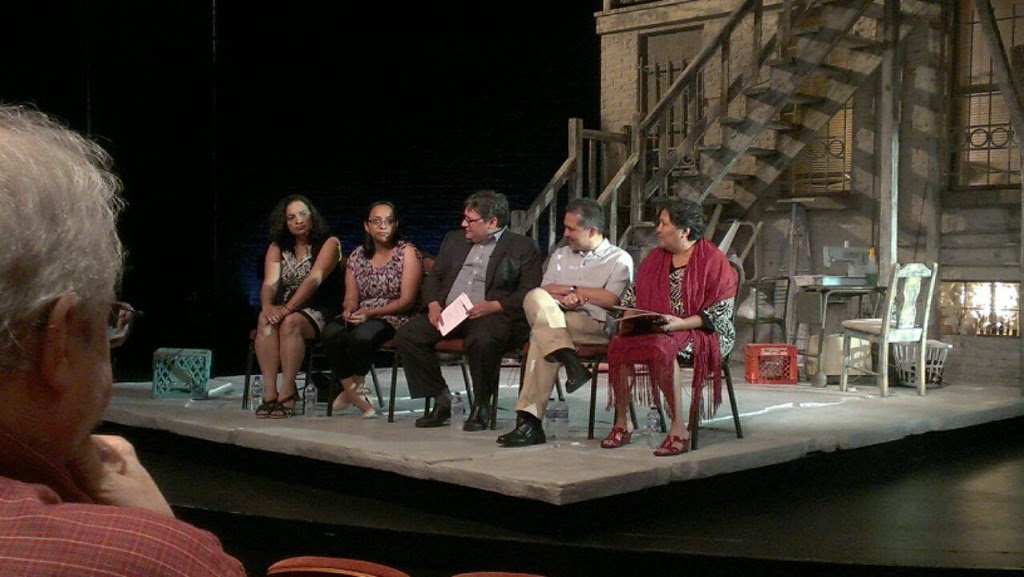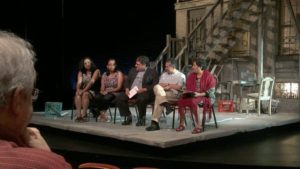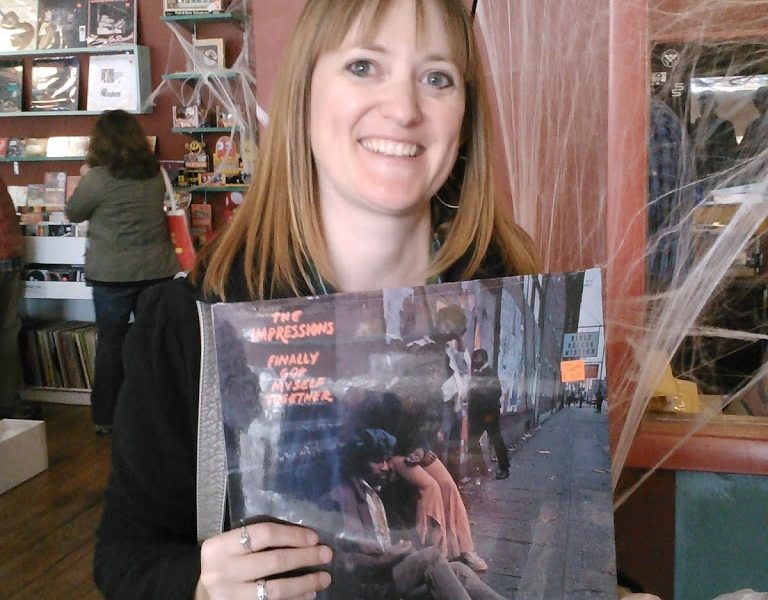
Co-op Rock Stars: Latino Policy Forum Says It Won’t Stop Fighting
 |
| A panel of Chicago-area experts discusses the prospect of immigration reform at the July 14 town hall meeting hosted by Co-op member Latino Policy Forum. |
President Barack Obama said last Tuesday that the House is unlikely to pass an immigration reform bill before their August break – but Co-op member Latino Policy Forum said it’s working hard to turn the prospect of reform into reality by raising awareness through a recent town hall meeting July 14.
“This is one year of many years that individuals have been dealing with this issue, and I think that at the end of the day, it’s sobering to hear this country, at this point, is not really accepting of immigrants as much as they would like to think,” said Isabel Anadon, Latino Policy Forum’s policy analyst who coordinated the event.
Founded in 1988 as Latino United, the Latino Policy Forum is a nonprofit that promotes Latino involvement in a range of public policy issues, including education, affordable housing and immigration reform.
The Latino Policy Forum held the “Pathway to Citizenship” town hall meeting in Chicago’s Lincoln Park neighborhood in conjunction with the Victory Garden Theater’s preview of the immigration-themed play, Mojada. The discussion featured a panel of Chicago-area experts, including representatives from the National Alliance of Latin American & Caribbean Communities and the Immigrant Youth Justice League.
Anadon said the prevalent mood among the 70 or so attendees was one of frustration.
Even the Senate bill, which is considered the high-water mark, contains bottlenecks that make the pathway to citizenship more like a labyrinth for the country’s nearly 11 millionillegal immigrants. Under the bill, known as S.744, unauthorized immigrants can apply for a registered provisional immigrant status (RPI), which would allow them to stay in the country legally after passing a background check and paying $1,000, additional fees and any back taxes owed. After 10 years they could apply for lawful permanent resident status – commonly known as the green card – after paying another $1,000. After holding the green card for three years, they could then apply for citizenship.
In total, it would take about 13 years for an illegal immigrant to become a citizen with voting rights.
To make the transition from provisional to permanent resident, immigrants would have to demonstrate they have an income at 125 percent of the federal poverty level. The federal poverty threshold fora family of four is $23,550 a year, when more than one quarter of illegal immigrant families have annual incomes lower than $20,000, according to the National Immigration Law Center, a nonprofit legal advocacy organization.
Between 2007 and 2011, about 43 million Americans – or 14 percent of the population – lived in poverty, according to a recent Census Bureau report. The poverty rate among legal Hispanics is about 23 percent, 9 percentage points higher than the overall U.S. rate.
The bill would also require illegal immigrants to maintain an almost spotless work record to qualify for a green card: no employment gap longer than 60 days during their 10 years as an RPI, a condition Anadon said is almost impossible for illegal immigrants to maintain in this economy.
On the other hand, the bill would expedite the road to citizenship for children who entered the U.S. before age 16 and either attended two years of college or served four years in the military. Last June, the Obama administration issued a directive stopping deportations of such people, known as Dreamers, after the Dream Actsought to legalize them.
The Senate bill would allow those Dreamers who have been in RPIs to apply for citizenship in five years instead of 10. And unlike previous versions, this bill contains no age gap – which would allow people in their 30s or older to qualify under the provision.
These terms are “the most generous we’ve ever seen,” Anadon said.
She also said education can go a long way in helping immigrants navigate the legislative maze, which was the goal of the town hall meeting.
“Fully understanding the bill and the implications of what it is and what it isn’t… is one of the biggest misconceptions – at least within the advocacy community – that we are facing,” she said.
But on the advocacy front, Anadon said the political timeline is working against their favor. Come September, legislators will be dealing with major issues like the budget and the 2014 Senate elections.
So what if the once-in-a-generation opportunity for immigration reform slips away this year?
“If immigration reform doesn’t happen this year, it will happen eventually because we are not going to stop fighting,” Anadon said, pointing to the growing Latino electorate. “We are a very young community. A lot of Latinos are turning 18 every day.”
The organization will focus on lobbying Illinois legislators during the next two months. Anadon said she encourages concerned citizens to call their representatives and voice support for a pathway to citizenship.
_________________________
Written by: Jia You
Photo provided by: Latino Policy Forum




